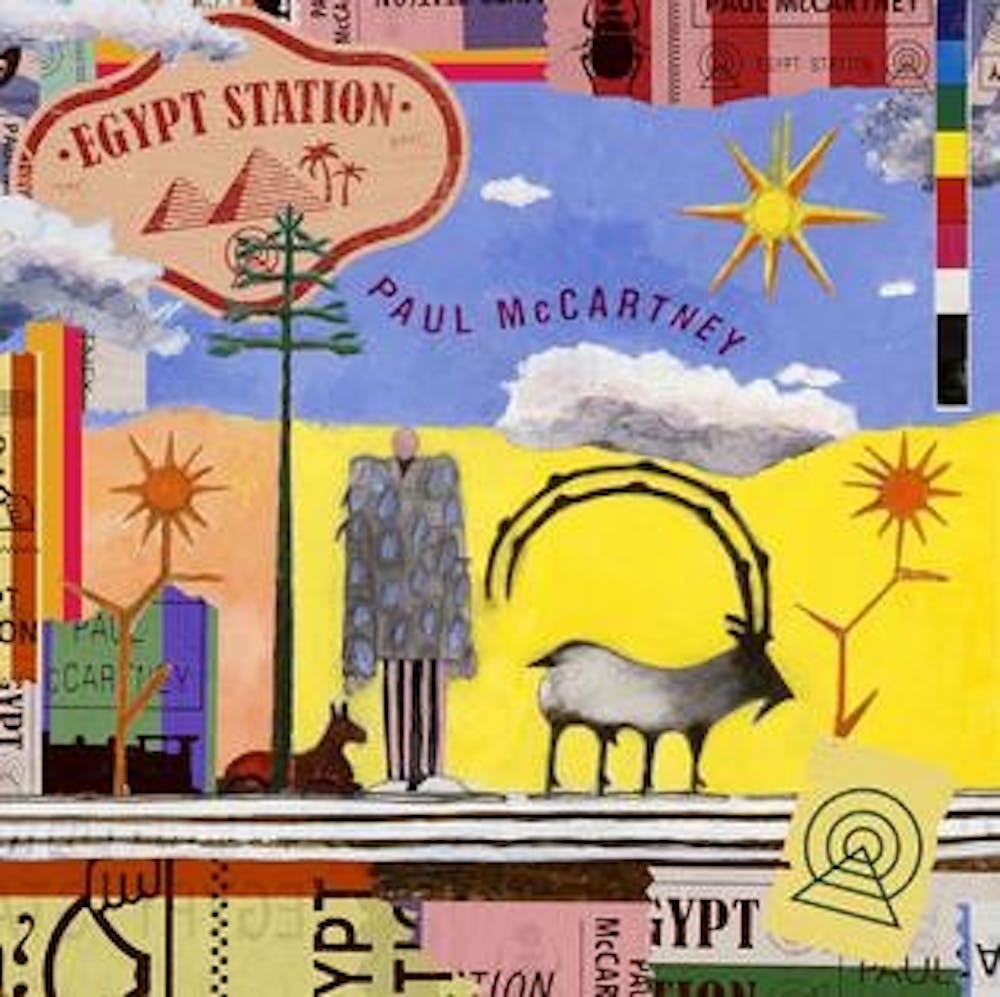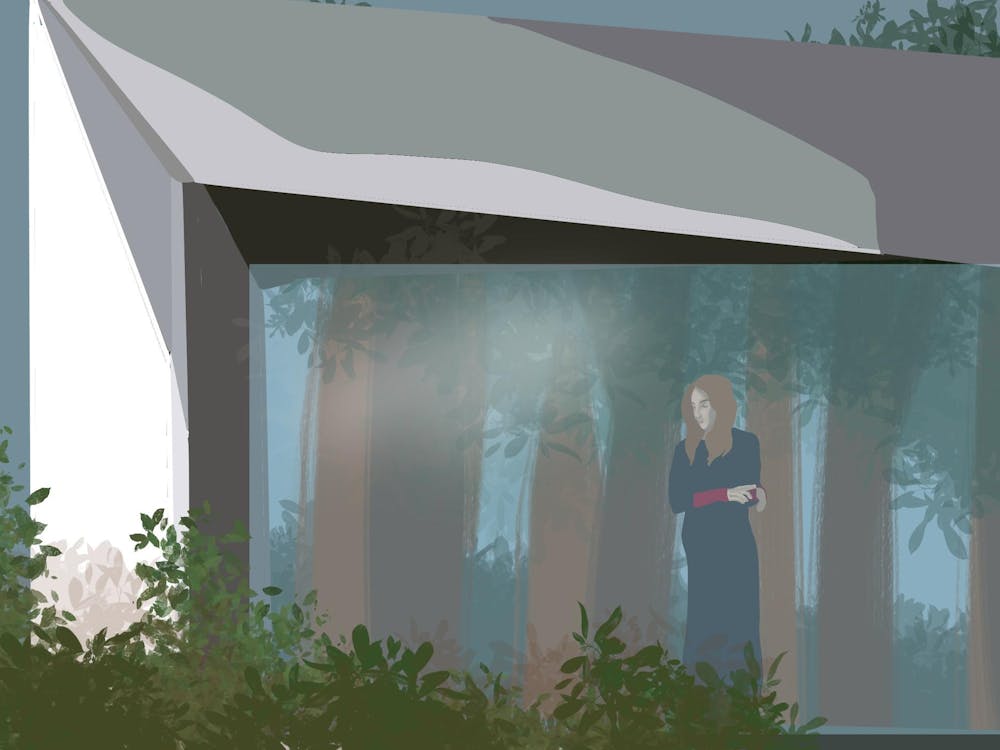As one of rock’s greatest dependables, Paul McCartney has nothing to prove to anyone. The 76-year-old’s post-Beatles career is comprised of 17 solo albums, a fruitful and commercially successful run with ‘70s band Wings and near-perpetual world tours. Considering the magnitude of his triumphs, adulation and influence on popular music, McCartney’s career could have comfortably ended decades ago. And yet, he admirably continues to release new material, not for the money or effusive praise, but for the sheer love of the craft. The bonafide legend just released another solo album, “Egypt Station,” an ambitious 57-minute journey into the contemplative psyche of a musical icon.
An extensive, nostalgic segment of “Carpool Karaoke” and head-scratching singles defined the album’s strange promotions circuit. Instead of releasing the standard Side A / Side B single, McCartney released a double A-Side single consisting of “I Don’t Know” and “Come On To Me.” Where the tender, wistful ballad “I Don’t Know” evokes mid-life anxieties and doubts, the goofy “Come On To Me” unveils McCartney’s abiding libido — “I saw you flash a smile that seemed to me to say / You wanted so much more than casual conversation,” he confesses. The singles differ in themes and instrumentation to the point of near confusion.
The bewilderment over McCartney’s forthcoming album was only exacerbated with the unearthing of “Fuh You” nearly two months later. McCartney aptly delineated “Fuh You” as “sort of a love song, but a raunchy love song.” Yes, in the chorus, McCartney slobbers, “I just want it fuh you,” but that’s not even the worst part of the song. A-list producer Ryan Tedder's insipid production replaces any sort of spontaneous ebullience with overblown One Republic-esque fluff. By the second verse, listeners can’t help but imagine McCartney as that archetypical older sleaze who wears tight leather pants, dyes his hair, works out five days a week and flirts with barely of-age girls — rather than the romantic who wrote “Here, There and Everywhere” and “Eleanor Rigby.”
Missteps aside, “Egypt Station” offers an impressionistic, adventurous grab-bag of genres and moods. We hear everything from piano ballads to multi-movement epics to muscular, good ol’ fashioned rockers. The impressionistic prologue “Opening Station” poignantly flows into “I Don’t Know,” and “Station II” amps up the listener in preparation for “Hunt You Down/Naked/C-Link,” the strident “Abbey Road-” inspired medley closing the album. Other than these two instances, though, most of the transitions between songs are jarring, which muddles the album’s pacing in turn.
Luckily, many of the stronger songs off “Egypt Station” don’t require the context of the album to entice and captivate. Side A standout “Who Cares” derives its charm from strutting staccato riffs, McCartney’s vivacious falsetto and a sweet, sincere message about ignoring bullies. Taking on the role of a reassuring grandpa, McCartney howls, “Who cares what the idiots say / Who cares what the idiots do / Who cares about the pain in your heart / Who cares about you? I do.”
McCartney continues to exert quietly empowering and deeply human sentiments throughout the album, perhaps most notably on “Confidante,” the languid, melancholic acoustic ballad. Here, McCartney reminiscences about his old Martin guitar propped in a corner of his house. He projects his inner turmoils, fears and yearnings onto his inanimate confidante — “I played with you throughout the day / And told you every secret thought / Unlike my other so-called friends / You stood beside me as I fought.” Just like the empathetic “Who Cares,” “Confidante” encourages a content, peaceful reconciliation with the self, even in nonideal circumstances. Inner peace and self-love are ubiquitous themes in music, but few musicians express them as eloquently and incisively as McCartney.
Out of all the tracks off “Egypt Station,” “Dominoes” most remarkably harkens back to McCartney’s heyday with The Beatles. The song’s complex composition, complete with backwards guitar solos, tape loops, subtle harmonies and an elaborate acoustic backbeat, touches down somewhere between “You Won’t See Me” and the more daring songs off “The White Album.” Even with its detailed instrumentation, “Dominoes” remains an accessible and transfixing reverie, especially with its euphonious power-pop chorus.
With “Egypt Station” alternating between the groovy and contemporary “Back In Brazil,” the fervid and lengthy protest song “Despite Repeated Warnings” and the downbeat ballad “Hand In Hand,” it does not stand as one of McCartney’s more coherent or well-produced solo efforts. Regardless, the album sustains its vigor for most of its lengthy 57 minutes, and offers plenty of gems along the way. Sixty years into his career, McCartney still delivers a palpable artistic prestige and an infectious enthusiasm for his craft, which renders “Egypt Station” one of the iconic musicians’ more endearing, if slight offerings.





